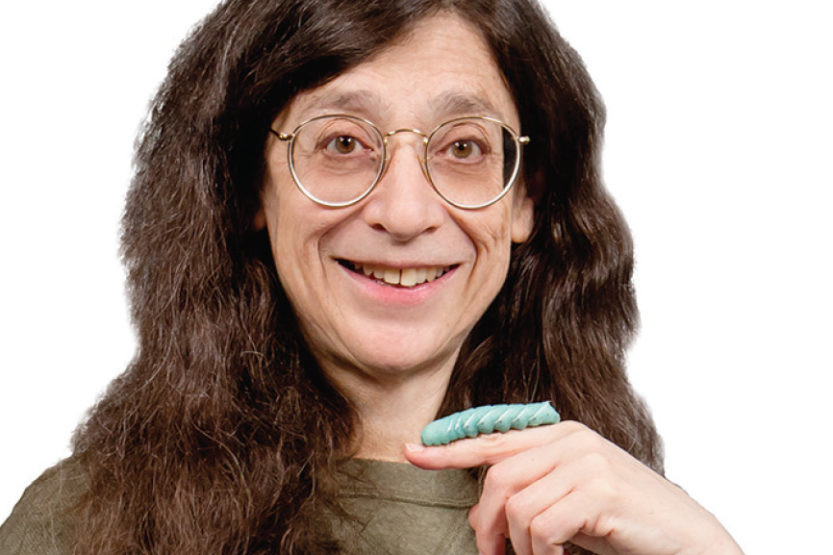In Class: Bee keeper
 Entomologist May Berenbaum. (Image by L. Brian Stauffer)
Entomologist May Berenbaum. (Image by L. Brian Stauffer) I teach “Insects and People,” a gen-ed class. Students often choose a general education class because it fits their schedule, or because they think it might be easier. Tough audience.
Like them or not, we share this planet with insects. Many of them are so beneficial that the planet wouldn’t function without them. My goal is not to convert everyone to becoming an entomologist. My goal is to get everybody to think twice before they step on an insect.
Hands-on is important. You only use two senses online—we can use all five senses in the classroom. Insects do smell, on occasion. They don’t call them “stinkbugs” for nothing.
Instead of writing a term paper, students can keep and maintain and observe an insect for some defined period. Then they see how their observations fit into the body of literature that exists about insects. For a lot of people this is as up close and personal as they’ve ever gotten to insects. I’ve had students in my office crying when their Cabbage looper [caterpillar] died.
We have a lab on honey and wax. We have an edible insects lab—the tempura batter-fried giant water bug is always popular. We have field trips where students identify carrion insects to calculate how long road kill has been sitting by the road.
We held the entomology department’s 30th Insect Fear Film Festival in February 2013. We had [The X-files creator] Chris Carter here. He brought along Darin Morgan, the scriptwriter who created the USDA entomologist named “Dr. Bambi Berenbaum”—in his words, “a luscious babe.” Hilarious.
We’ve had a Fly Fear Film Festival. We’ve had Female Insect Fear Film Festival. For our Mosquito Fear Film Festival, we ran a concurrent blood drive. The 2014 one was the Pesticide Fear Film Festival.
I have developed a research interest in honeybees. Our major focus is to determine how honeybees metabolize pesticide. Honeybees are the world’s premier managed pollinator species. They end up in many different types of agro-ecosystems. The University of Illinois is the home of the Honeybee Genome Project. Turns out honeybees have fewer genes that code for enzymes that break down toxins. They’re remarkably tolerant of certain types of plant toxins and certain types of fungal toxins. But some of the synthetic chemicals are a real challenge for them.
People are now realizing just how profoundly contaminated honeybee hives are. Work at Penn State found over 100 pesticides and metabolites in beehives and bee products, 121 different types of chemicals, including every class of pesticide. Not just insecticides—every class of pesticide. They are, as one of my entomological colleagues calls them, “flying dust mops.”
What we’ve learned since the first appearance of colony collapse disorder is, first of all, that we didn’t know as much as we thought we knew about the life of the honeybee. One encouraging thing in the last six years or seven years is that we’ve learned an enormous amount, and more people than ever are working on honeybees. As they should have been all along.
Edited and condensed from an interview conducted on Dec. 12, 2013.


